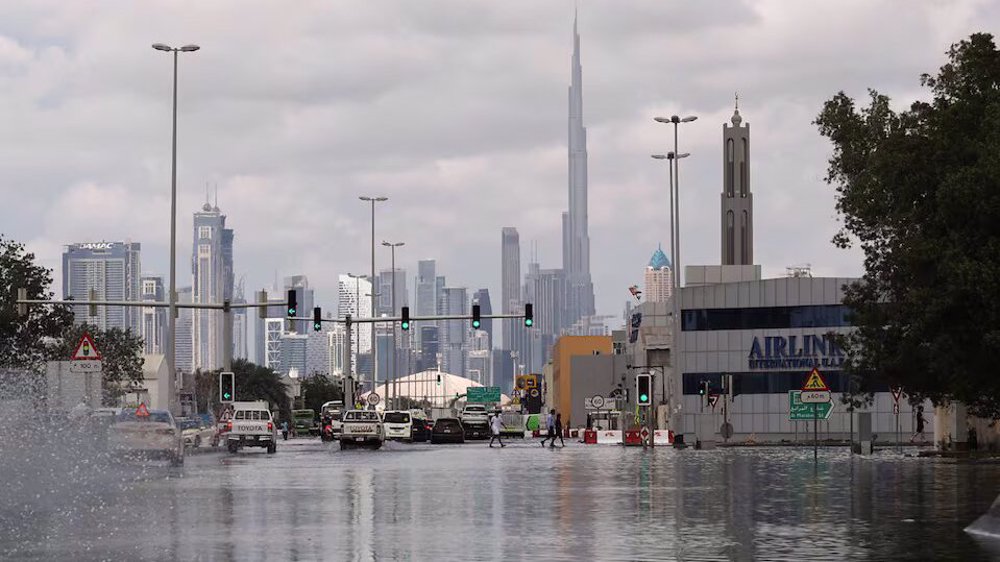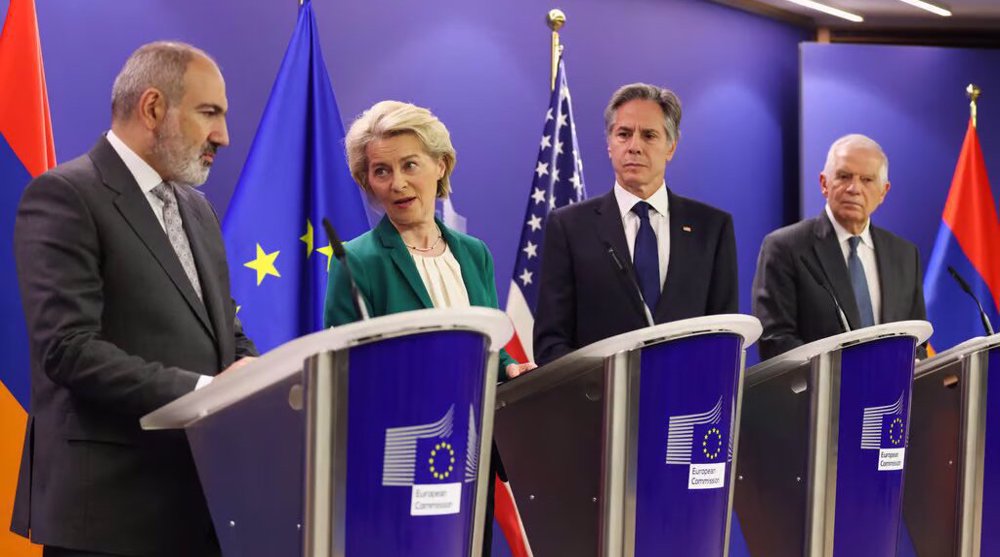Jordan to drop IMF-imposed tax bill after biggest protests in years
Jordan's new prime minister says he will drop a controversial IMF-backed income tax bill which has sparked the kingdom's biggest protests in years.
PM Omar al-Razzaz said there is a consensus to withdraw the income tax bill after a meeting in parliament in the capital Amman on Thursday.
“The priority is to consult with the MPs, senate and unions, first over the draft income tax law,” Razzaz said, adding, “We will hold many meetings and by the end of today, we will be able to reach a clear vision of the future.”
The legislation will be sent back to the government once a new cabinet is formed, he said.
The new premier hoped that the measure would comfort Jordanians as he pledged to listen to them. “We have to take immediate measures to return to the right path.”
King Abdullah appointed Razzaz to form a new government after Hani Mulki resigned as prime minister in a bid to defuse public anger over price hikes. Razzaz, a former World Bank economist, was Jordan's education minister in the outgoing government.
The king also said the new cabinet should review the country's tax system and immediately start a dialogue over the draft income tax law.
Mulki submitted his resignation after the largest anti-government demonstrations since 2011 hit Jordan.
The protests began eight days ago over tax increases and subsidy cuts pushed by the International Monetary Fund (IMF) to reduce the country’s big public debt.
Crowds have taken to the streets to demand the government drop the unpopular reforms.
Although a majority of deputies said they would vote against it, the protesters still staged repeated night-time demonstrations after breaking the Ramadan fast to demand the bill be withdrawn altogether.
On Wednesday, Jordanian unions representing tens of thousands of employees in the public and private sectors staged a general strike against the government's economic policies and tax hikes.
Scuffles took place between police forces, mobilized in large numbers, and some 2,000 demonstrators who tried to repel them in the capital Amman.
The demonstrators waved Jordanian flags or carried placards reading "I'm afraid for my future", while others held up loaves of flatbread with "corruption = hunger" written on them.
"Prices are constantly rising on all products: food, cars, housing and telecommunications ... We do not work for ourselves anymore, but to pay the state," unemployed protester Suhaib Rabaibai said.
The tax bill was the latest in a series of austerity measures to cut national debt since Amman secured a $723-million loan from the IMF in 2016.
Since January, resource-poor Jordan has seen repeated price rises including for staples such as bread, as well as extra taxes on basic goods.
Fuel prices have risen five times since the start of the year, while electricity bills have surged by 55 percent since February.
The government says it needs more funds for public services and argues that the tax changes reduce social disparities by placing a heavier burden on high earners. Opponents say a tough IMF-imposed fiscal consolidation plan has worsened the plight of poorer Jordanians and squeezed the middle class.
Jordan's economy has struggled to grow in the past few years in the face of chronic deficits, as private foreign capital and aid flows have declined.
The country has a public debt of some $35 billion, equivalent to around 90 percent of its gross domestic product.
Iraqi fighters strike ‘vital’ Israeli target in Syria’s occupied Golan
VIDEO | Plight of Palestinians
VIDEO | Self-Driving Robot
VIDEO | Simorgh, Iran's tactical light cargo plane
Colombia to cut diplomatic ties with Israel over genocide in Gaza
VIDEO | Gazans mourn over bodies of loved ones at al-Najjar hospital in Rafah
VIDEO | Taliban: No one allowed to use Afghanistan to attack other countries
1,000 Palestinian workers from Gaza 'missing' in occupied lands: NGOs












 This makes it easy to access the Press TV website
This makes it easy to access the Press TV website